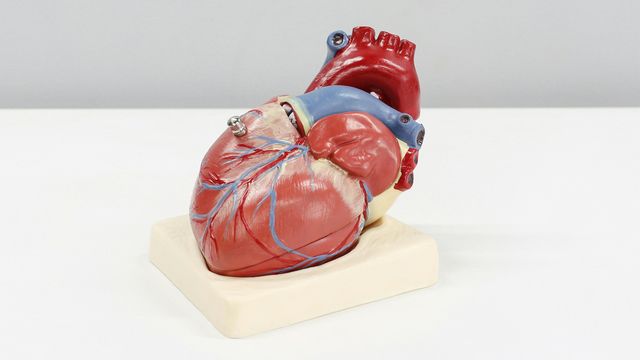Thank you. Listen to this article using the player above. ✖
A large international study has found that spironolactone, a medication for high blood pressure and heart failure, does not reduce the risk of heart-related death or hospitalizations in people with kidney failure receiving dialysis, despite earlier smaller studies suggesting benefit.
The study – led in the UK by the University of Glasgow and published in The Lancet – are part of the ACHIEVE trial, the largest trial to date on the drug spironolactone in people receiving dialysis.
Globally, an estimated 2.5 million people receive dialysis for kidney failure. Heart disease is the leading cause of death in this population, responsible for about 40 per cent of all deaths.
Unfortunately, the study found that spironolactone showed no cardiovascular benefit in this group of patients, and it increased the risk of severe hyperkalaemia, a rise in blood potassium levels that can lead to irregular heart rhythms or even death in extreme cases.
For the study, 2,538 participants were enrolled from 143 dialysis centres across 12 countries. All participants had been on dialysis for at least three months and were either over 45 years old, or over 18 with diabetes.
The UK arm of the ACHIEVE trial was led by Professor Paddy Mark of the University of Glasgow and funded by the British Heart Foundation.
Clinical teams and patients from dialysis centres across all four nations of the UK took part in this important clinical trial, and their participation ensured the successful, on-schedule completion of the global trial.
Researchers tested whether a low daily dose (25 mg) of spironolactone could block aldosterone, a hormone that causes heart remodeling, fibrosis, and raises cardiovascular risk. They wanted to see if this treatment could lower the risk of cardiovascular death or hospitalization for heart failure in patients with kidney failure.
Patrick Mark, Professor of Nephrology at the University of Glasgow’s School of Cardiovascular Health and Metabolic Medicine, said: ‘Although the trial result was neutral, this is another crucial piece of information which will help the quest to improve outcomes for people with kidney failure treated with dialysis”
Michael Walsh, principal investigator of the study and senior scientist at the Population Health Research Institute (PHRI), a joint institute of McMaster University and Hamilton Health Sciences, said: “In people with normal kidney function, spironolactone reduces cardiovascular events. However, people receiving dialysis might not respond the same way to treatments proven effective in the general population.
“We launched the ACHIEVE study to determine the safety and effectiveness of spironolactone in people with kidney failure. Aldosterone plays a harmful role in heart disease, and its levels tend to be high in dialysis patients. That’s why we thought spironolactone might help.”
The trial began recruiting in 2018 and concluded in December 2024. Of the 3,565 patients recruited, 2,538 who tolerated the drug during a seven-week run-in period were randomly assigned to receive either 25 mg of spironolactone daily or a placebo. The trial was stopped early for futility after an independent monitoring committee determined there was little chance of seeing a meaningful benefit.
Cardiovascular death or hospitalization for heart failure occurred in 258 patients in the spironolactone group, compared to 276 in the placebo group. The difference was not statistically significant. The study noted a potential difference in these incidents between men and women, although more research is needed to understand why. Severe hyperkalaemia occurred more often in the spironolactone group: 6.6 per cent of patients in the spironolactone group, compared to 4.5 per cent in the placebo group.
Michael Walsh added: “We really hoped that spironolactone could make a difference for people on dialysis. While the results are not what we wanted, they provide much-needed clarity. This study moves us one step closer to finding effective and safe treatments for a group that urgently needs them.”
Reference: Walsh M, Collister D, Gallagher M, et al. Spironolactone versus placebo in patients undergoing maintenance dialysis (ACHIEVE): an international, parallel-group, randomised controlled trial. The Lancet. 2025;406(10504):695-704. doi: 10.1016/S0140-6736(25)01198-5
This article has been republished from the following materials. Note: material may have been edited for length and content. For further information, please contact the cited source. Our press release publishing policy can be accessed here.
